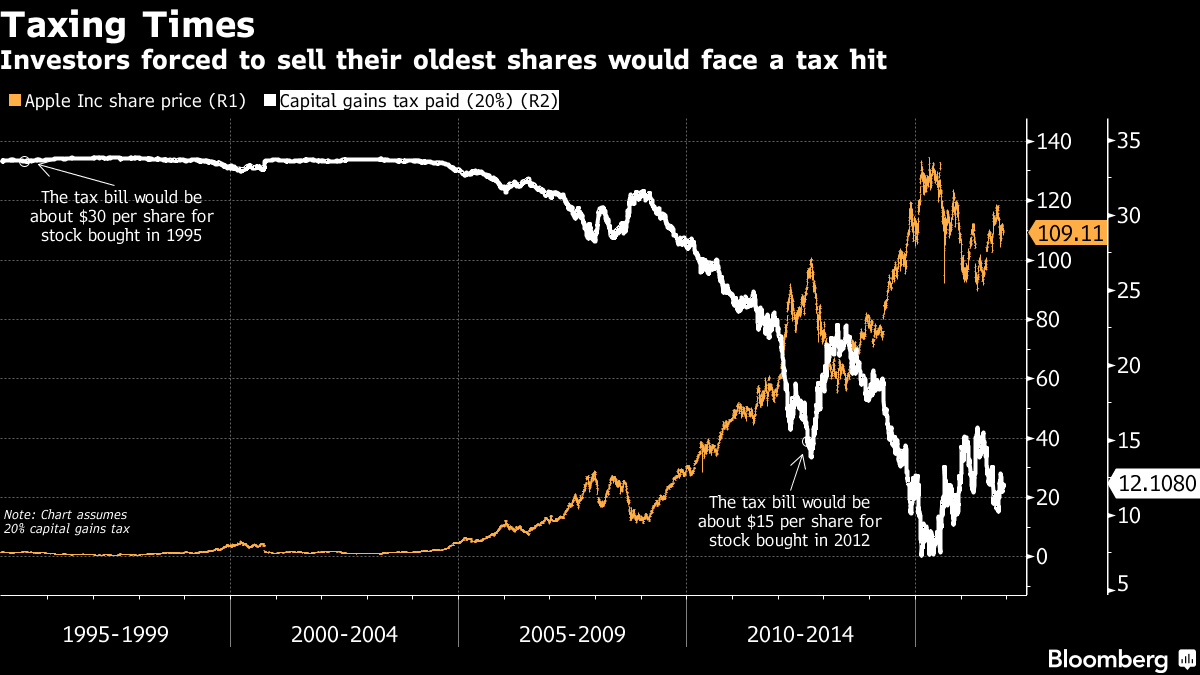Making money in the stock market could get more expensive.
The U.S. tax overhaul may severely limit investors’ ability to minimize capital gains on stock -- driving up the taxes they’d owe if the Senate gets its way. That chamber’s version of the bill mandates investors with taxable brokerage accounts sell shares they’ve owned the longest first, a method known as “first-in, first-out,” or “FIFO.”
The proposal is among dozens of credits and deductions for individuals Congress is seeking to eliminate to partially offset the cost of lower tax rates. Lawmakers have to make sure the 10-year cost of their tax plan stays below $1.5 trillion under Senate budget rules. The stock sale change would raise a total of $2.4 billion over the next decade, according to estimates by the Joint Committee on Taxation.
Under current tax rules, investors can choose which batch of a security to sell, allowing them to minimize taxes on gains. Consider an investor who purchased Apple Inc. shares twice -- in 1995 and in 2012 -- and then wanted to sell the stock today with the price trading near $170. The investor would pay far less in taxes by selling the shares from 2012, when Apple traded at an average of $82, than those from 1995, when Apple traded below $1.

“Brokers are going crazy with this change, urging their clients to sell, sell, sell," said New York-based tax and accounting adviser Robert Willens of the FIFO change. “The current rules allow investors the flexibility to choose which shares they want to sell, which they need to do for tax-loss selling.”
This week Congress is likely to begin reconciling the House and Senate versions of the tax legislation. The FIFO provision was proposed by the Senate. The change stands to affect a wide range of investors from occasional traders and hedge funds to the largest family offices. The proposal exempts regulated investment companies, such as mutual funds and exchange-traded funds, a win for some of the country’s largest asset managers.
“The exemption would not apply to private funds” like hedge funds or other high-end investment pools, said Shlomo C. Twerski, a partner at Schulte Roth & Zabel in New York and co-head of its tax group.
Tax firms are already studying ways to help clients preserve tax benefits if Congress passes FIFO. Some investors may be able to avoid FIFO by dividing their holdings between multiple money managers or brokers, segregating low-basis and high-basis holdings, said Mark Nash, a tax partner at PricewaterhouseCoopers.
Tax Strategies








